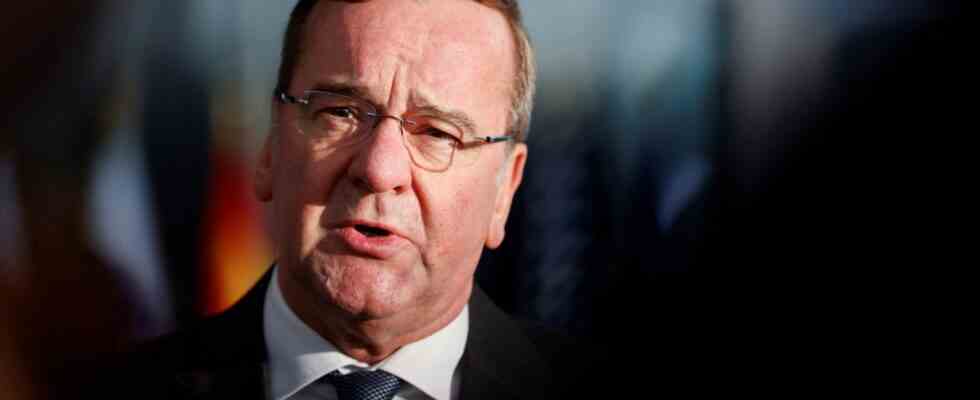Status: 02/15/2023 11:36 a.m
When it comes to defense spending, Germany is lagging behind NATO’s two percent target. Nevertheless, Defense Minister Pistorius is now calling for the goal to be tightened. The federal government is “in the vote” on this.
Defense Minister Boris Pistorius supports calls from NATO partners for a tightening of the Alliance’s target for defense spending. At a meeting of NATO defense ministers in Brussels, the SPD politician said he shares the view that expenditure of two percent of gross domestic product (GDP) should be the lower limit in future.
“Just wanting to approach the two percent target will not be enough,” he emphasized. That must be the basis for everything else. Pistorius was alluding to NATO’s current goal. This envisages that by 2024 all allied countries should approach the target of spending at least two percent of their GDP on defense.
Agreement is expected by July at the latest
Discussions are currently being held in NATO about the future goal. An agreement should be reached at the latest at the next regular summit. This will be organized on July 11th and 12th in Lithuania’s capital Vilnius.
As things stand today, a tightening of the two percent target would require an increase in German defense spending by an amount in the double-digit billions. So far, Germany has spent significantly less than two percent of GDP on defense. According to available public figures, only a rate of 1.44 percent was expected for 2022 – based on defense spending according to NATO standards of 55.6 billion euros.
On the question of whether his statements correspond to the German position for the NATO negotiations, Pistorius said: “We are in the Federal Government in the vote on it and will certainly conclude it soon.”
Cooperation to protect the eastern flank
On the fringes of the meeting, it was also announced that Germany, Great Britain and Canada are seeking closer cooperation to protect the three Baltic NATO partners Lithuania, Latvia and Estonia. According to Pistorius, for example, exercises should be better coordinated. Better coordination also has a greater deterrent effect, explained the SPD politician.
According to Pistorius, all six countries agreed on a paper on the subject on Tuesday evening. It’s about how to protect the Baltic States particularly effectively as a particularly exposed part of the alliance, he said.
Along with Great Britain and Canada, Germany is one of the leading NATO nations on the eastern flank. The Bundeswehr is primarily present in Lithuania, where it also leads a multinational battle group.

